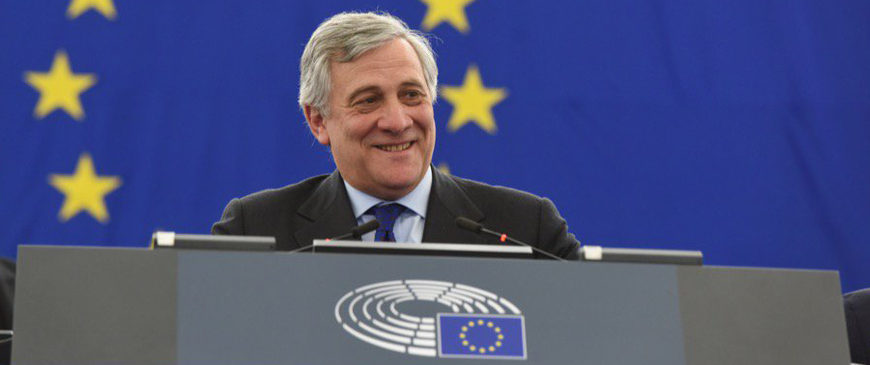
Will the new president of the European Parliament make any difference to the Brexit talks?
The European Parliament (EP) yesterday elected Antonio Tajani, an Italian MEP from the centre-right European People’s Party (EPP), as its new president. A British journalist said that Tajani would “make Schulz look like a political giant”. Tajani does not have the charisma of his former boss, Silvio Berlusconi, or Martin Schulz. Nor does he seem to be interested in political power plays. But in the upcoming Brexit talks, the EP will not be less assertive because of Tajani’s election.
The EP has to approve the final withdrawal deal and any future trade agreement between the UK and the EU 27. In the past the Parliament has used its veto when it felt ignored in international negotiations. The combative liberal Guy Verhofstadt, not Tajani, will represent MEPs in Brexit-related discussions with other institutions and member-states. He is a staunch EU federalist who wants a greater say for the Parliament in the Brexit talks, including a seat at the negotiating table. But the EU treaties do not provide for this, and member-states have little appetite for boosting the influence of the EP at their own expense.
This sets the two sides up for a clash, and member-states may be forced to reconsider their opposition. The liberal group, ALDE, struck a deal with the EPP whereby ALDE supported Tajani in return for the EPP promising to back Verhofstadt’s demands on the Brexit talks. They agreed that the EP’s participation in the work of the EU negotiating team would be a pre-condition for the Parliament’s approval of the withdrawal treaty.
The Commission might see increased involvement for the Parliament as a blessing in disguise. It may reduce the risk of MEPs vetoing a deal because they had not been involved in striking it. Member-states will have to weigh their worries about Parliament’s role against the risk that if they refuse to give the EP what it wants it could block the withdrawal agreement. That could lead to an unmanaged Brexit with no agreement in place, putting UK and EU citizens and businesses in legal limbo.
Tajani’s victory could complicate the Brexit talks in another way. With the election of Tajani, the EPP now runs the European Parliament, the Commission and the European Council. The Socialists and Democrats (S&D), the second largest group in the EP, may want to replace the current European Council president, Donald Tusk, with one of their own when his first term ends in May 2017. But ousting Tusk would be a mistake. He led negotiations with David Cameron in 2016, so he knows the issues and understands member-states’ concerns about Britain’s departure. A new European Council president would need time to get up to speed on the issues and build relationships with member-states. No European leader, not even Theresa May, should want such a transition on the eve of momentous negotiations affecting the fate of the EU.
Agata Gostyńska-Jakubowska is a research fellow at the Centre for European Reform.
